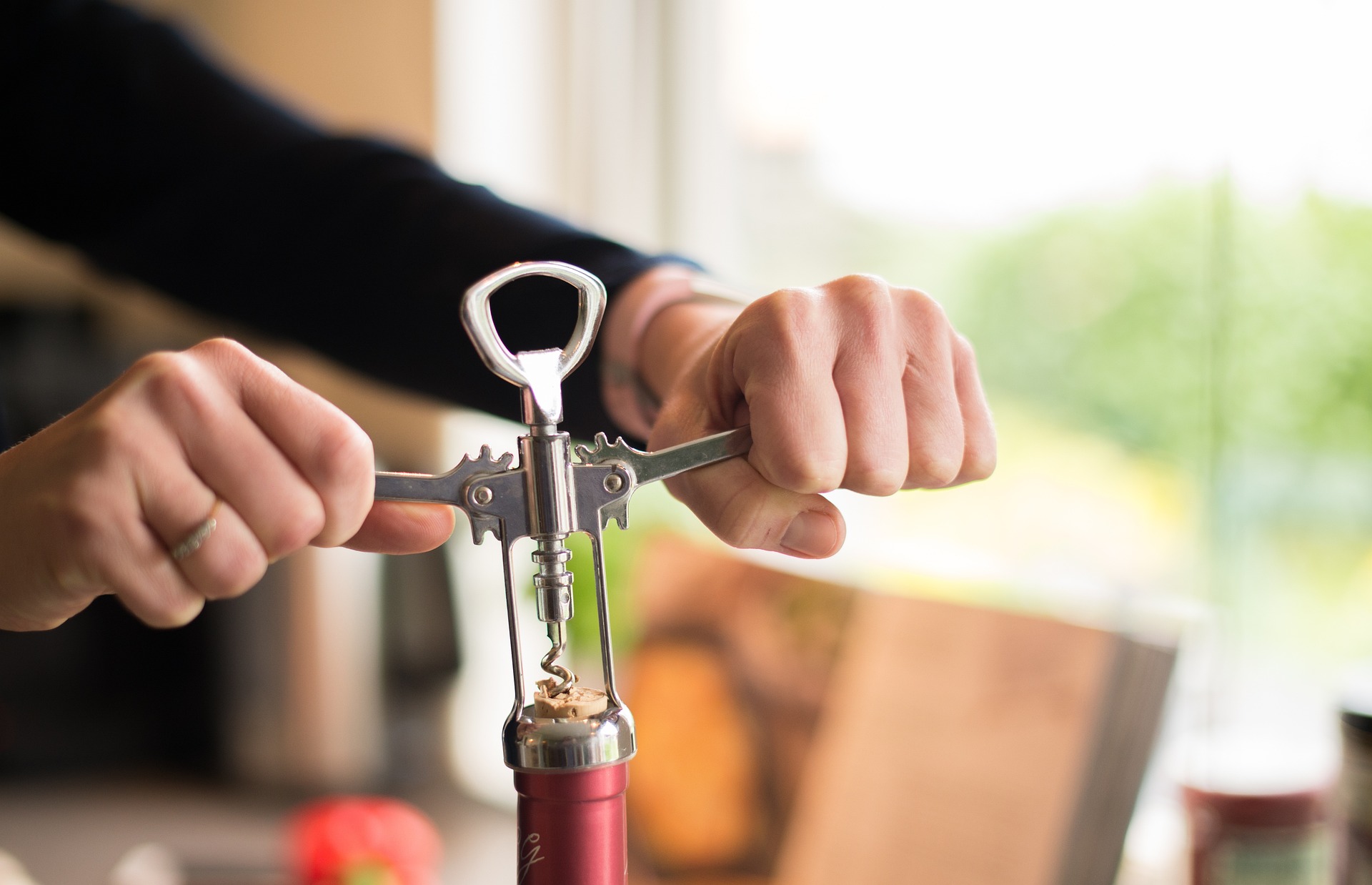
If you’re anything like me, the words “leftover” and “wine” don’t often fall into the same sentence unless it goes something like, “Why in the world would anyone ever have leftover wine?” Nevertheless, it is a common question worth knowing the answer to. After all, if you’ve uncorked a delicious bottle and can’t finish it for some unknowable reason, it’s nice to know how long you have until that bottle turns on you for being a quitter.
The lifespan of an open bottle of wine varies quite a bit depending on a few factors – wine varietal, oxygen exposure, storage conditions, temperature of your home or refrigerator, and even weather. Every wine will react differently under these varied conditions, and it’s essential to know how long you have to finish the bottle. Because once it’s opened – no matter the wine – the clock is ticking.
 Why does open wine go bad?
Why does open wine go bad?
Think of opening wine like pruning a rose. You cut the stem to enjoy the beautiful bloom in a vase on your coffee table, but once that flower is cut, it’s already begun to die. So enjoy those gorgeously fragrant blossoms in the precious time you can. Opening a bottle of wine is the same way. Once wine has been exposed to oxygen, it must be enjoyed within a very short timeframe. This is because of oxidation.
While oxidation in the form of decanting is great for wine for a few minutes after opening a bottle, soon, this fickle scientific process will turn from being a helpful step in accentuating the wine’s flavors to one that will kill them altogether. This is because oxidation causes the wine to develop acetic acid bacteria, which consume the alcohol in wine and create a bitter, vinegar-like taste and smell.
How long will a bottle last?
Of course, not all wines are created equal. The amount of time you’re trying to stretch that bottle will greatly depend on what kind of wine it is.
Red wines
Typically (not always), red wines will last a bit longer than other varieties. This is because reds tend to be more tannic, and tannins protect against oxygen. Therefore, more heavily tannic wines such as Shiraz or Cabernet Sauvignon will last a day or two longer than something less tannic like Pinot Noir. Depending on the kind of red, you can expect the wine to last between three and six days if you’re careful to re-cork and store it in the refrigerator. Yes, the refrigerator. Even though red wine is not often served chilled, it’s important to keep open reds in the fridge to slow down the growth of bacteria.
White wines & rosé
Drier wines tend to last a bit longer, so dry rosés and whites like Fiano, Roussanne, and Verdelho will last for up to three days in the refrigerator. The exceptions to this rule are oaked wines. Oaked Chardonnay and Viognier, for example, while on the drier side, are often exposed to additional oxygen during their aging processes and will, therefore, not last quite as long. These, as well as more light-bodied whites like Pinot Grigio, Riesling, and Sauvignon Blanc, will keep well for about two days in the fridge.
Sparkling wines
Did you grow up with someone in your house who infuriatingly would open a soda can, take a sip or two, and then put the opened can right back in the refrigerator? It’s absurdly maddening and, now, one of my biggest pet peeves in life. This is because that soda is going to be a flat and lifeless can of syrup water in absolutely no time at all, and no one will ever, ever come back for it. Sparkling wine is the same way. Carbonation – the bubbly, fizzy miracle that makes things like Champagne and Dr. Pepper feel like bursting pearls on the tongue – is not around for the long haul, and it’s advised to drink any sparkling wine you have within three hours of opening. It is possible to retain some of that delicious fizz for up to two or three days by sealing the opening as tightly as possible, but it’s going to lose a lot of its magic. It’s best to drink the whole bottle in one go. Dammit.
 Why does open wine go bad?
Why does open wine go bad?



